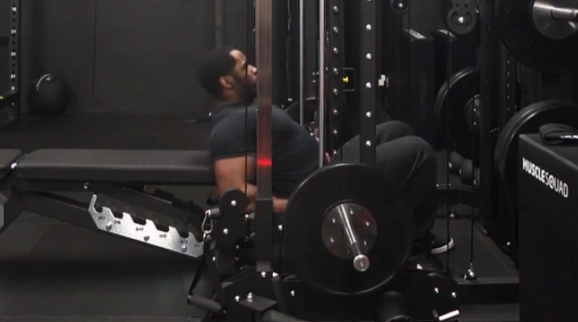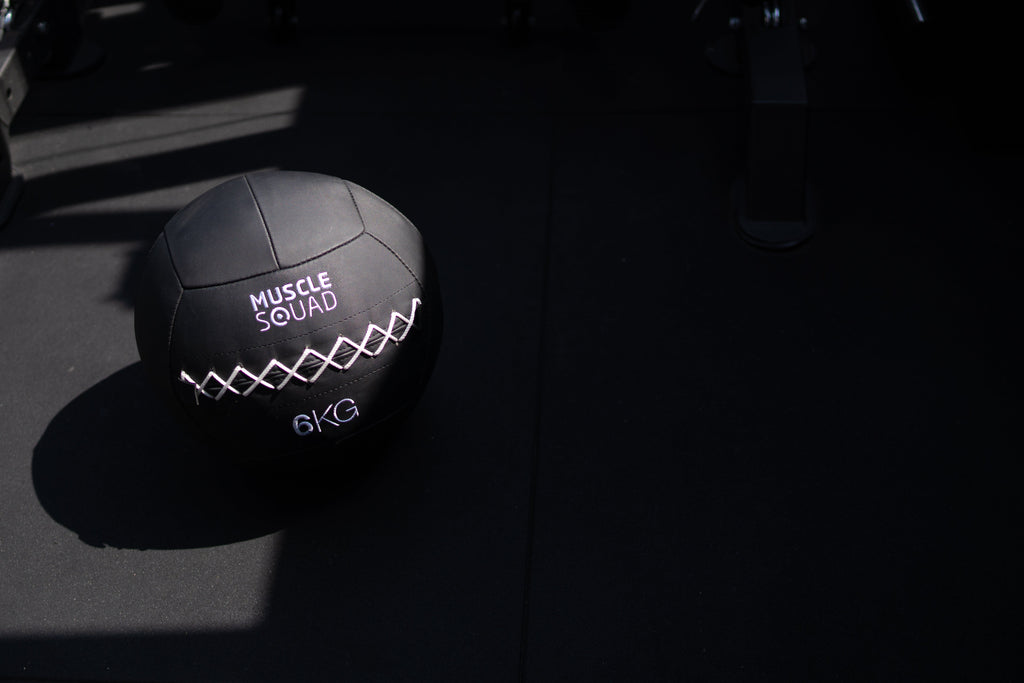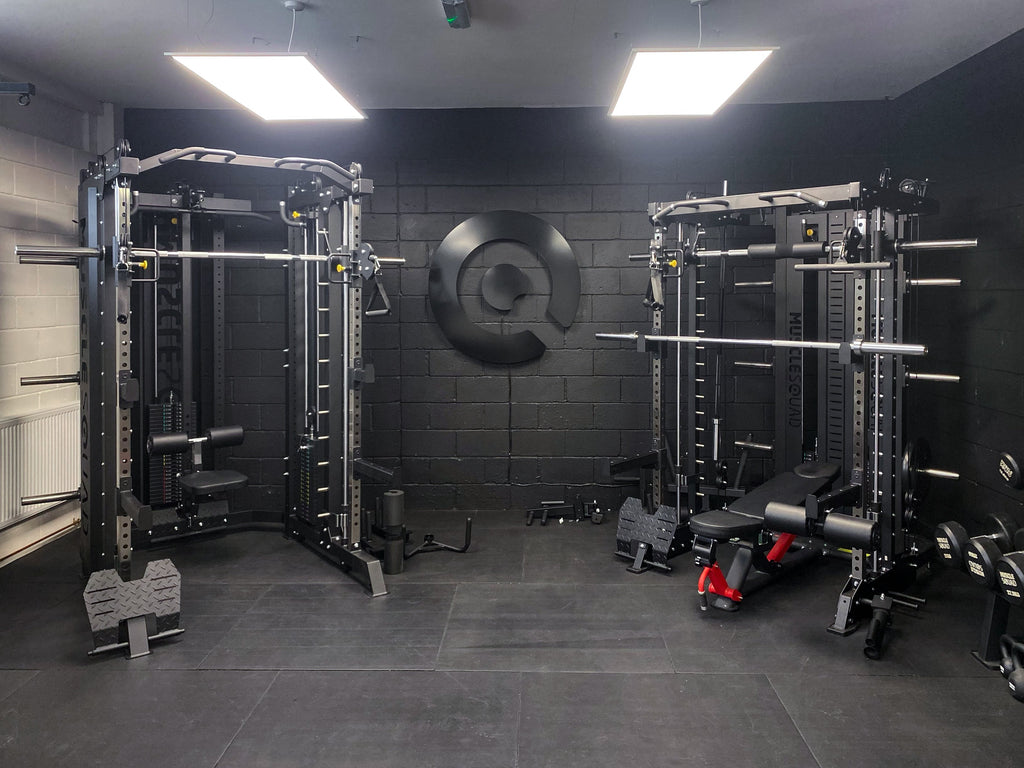Whether you’re building a gym in a garage conversion, PT studio or a commercial setting, the very first step you should take is to lay down suitable flooring. Rubber floor tiles are the industry standard, but what level of thickness is right for your space? You need something that can absorb a lot of impact from dropped dumbbells and barbells without paying overkill for a thickness you don’t need.
Fear not — we’re here to set you on the right path whatever gym type you’re building.
Why do I need rubber flooring in my gym?
Rubber tiles are the material of choice for gym and home owners for a few reasons.
First, they offer fantastic shock absorption. This is important for protecting your building’s foundations, as the repeated dropping of heavy weights can very quickly damage a concrete underlay. You’ll also be extending the life of your dumbbells, barbells and weight plates by installing rubber flooring, as the cushioned surface prevents cosmetic damage from chipping away at your weights and maintains their build quality.
There’s also a sound-proofing benefit that’s especially important in home gyms. Nobody wants to be the person that’s disturbing the neighbours with early or late workouts and the constant clang of metal hitting the ground. The density of rubber gym flooring aids in soundproofing your room so that the noise of your weights doesn’t carry.
Since the gym is your place to get a sweat on, rubber tiles also make it easy to keep your space clean and hygienic. They’re made out of EPDM rubber which is easy to clean with a simple floor cleaner, and has a smooth surface to avoid collecting mop hairs and other bits of cleaning equipment.

Gym flooring uses a stamped pattern on the bottom to provide better absorption
How thick should my gym flooring be?
The minimum thickness we recommend to people is 20mm. Anything below this is too thin and doesn’t offer enough protection to your building’s foundations when you consider the massive amount of impact your flooring needs to be able to withstand.
20mm tiles
- Suitable for: temperature-controlled home gyms and PT studios
- Dimensions: 1m x 1m x 20mm
- Weight per tile: 17kg
- 👉 Link
20mm floor tiles are perfectly suitable for any home gym or PT studio that’s in a temperature-controlled environment. We stress this so much because rubber shrinks in the colder months if it’s not properly insulated, so a layer of 20mm flooring in a non-insulated room will start to develop narrow patches between the tiles in winter.
If your space is insulated, though, then 20mm is perfect for all non-commercial spaces.
30mm tiles
- Suitable for: non temperature-controlled home gyms and PT studios
- Dimensions: 1m x 1m x 30mm
- Weight per tile: 25.5kg
- 👉 Link
While these tiles are only 10mm thicker than the last entry, they’re 50% thicker. As such, they move much less than 20mm floor tiles and are significantly heavier, with each tile adding another 8.5kg in weight. This extra thickness helps preserve the shape of your tiles in an uninsulated room, so even in winter months you should only notice minimal shrinkage.
40mm tiles
- Suitable for: commercial spaces
- Dimensions: 1m x 0.5m x 40mm
- Weight per tile: 17kg
- 👉 Link
40mm floor tiles are commercial-grade and built like a rock. We sell them in 1 metre x 0.5 metre cuts simply to make them easier to transport, as they’d weigh almost 35kg if we sold them in full squares. Home owners and PT studios can opt for 40mm tiles if they’d like, but it’s unnecessary. We only recommend these to commercial gyms that will experience heavy use on a near-constant basis.
And it’s as simple as that! We hope you have a clear idea of what gym flooring you need now and are ready to build a smashing workout space.
Best of luck with your build and happy training! 👊

 Jul 25, 2024 - Cameron Brierley
Jul 25, 2024 - Cameron Brierley


Leave a comment: